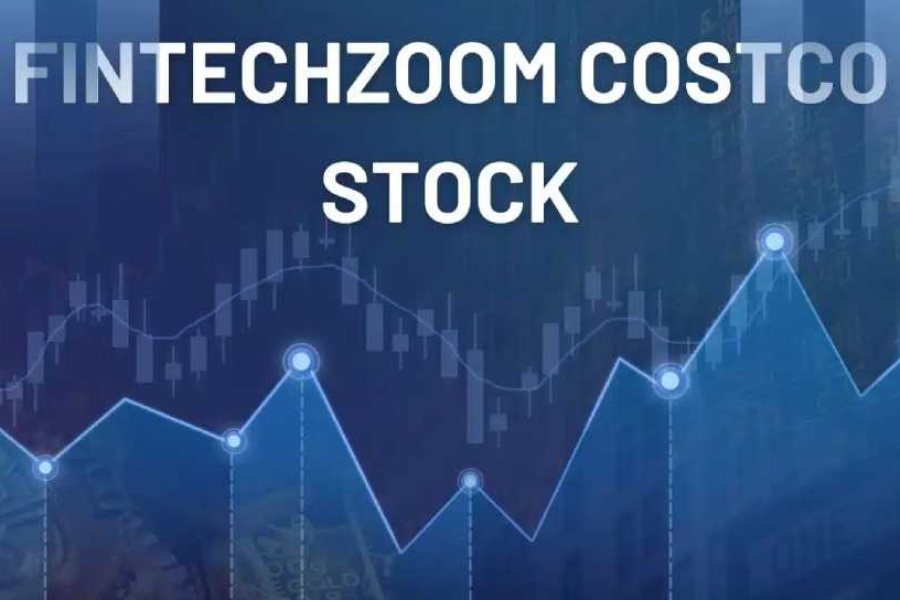Costco Wholesale Corporation (NASDAQ: COST) has long been a darling for both retail and institutional investors. Known for its membership-based wholesale business model, Costco has maintained strong profitability while expanding its operations globally. As the retail landscape evolves, companies like Costco are scrutinized for performance metrics and growth potential. FintechZoom Costco Stock, a renowned financial media platform, frequently covers Costco stock, providing up-to-date analysis, expert predictions, and trends for investors. In this article, we explore Costco’s stock performance, market drivers, risks, and the insights FintechZoom offers to investors tracking Costco’s progress.
Overview of Costco Stock Performance
Costco’s stock (COST) has shown remarkable growth over the past decade, consistently outperforming market averages. The company benefits from strong consumer demand for bulk goods, everyday essentials, and private-label products under the Kirkland brand.
- Historical Returns: Over the last five years, Costco’s stock has provided annualized returns of around 17% to 20%, well above the S&P 500’s average of 10%.
- Current Valuation (2024): As of recent reports, Costco’s share price hovers around $570-$600 per share, with a market capitalization exceeding $260 billion. Despite operating in a low-margin business, Costco’s operational efficiency and membership model ensure a steady cash flow, which contributes to its impressive valuation.
According to FintechZoom’s recent analysis, Costco’s stock continues to trend upward, with analysts expressing bullish sentiment despite broader market volatility. Several catalysts, including robust membership renewals and expanding global reach, provide Costco with the resilience to maintain long-term profitability.
What Drives Costco’s Growth?
Costco’s business model has proven remarkably resilient across market cycles. Let’s explore the key drivers behind the stock’s performance.
1. Membership Model and Customer Loyalty
Costco’s subscription model, with annual membership fees ranging from $60 to $120, ensures a consistent revenue stream. The membership renewal rate remains over 90% in North America, reflecting strong customer satisfaction and loyalty.
FintechZoom’s analysis highlights the significance of recurring revenue from membership fees in Costco’s earnings. Even in times of economic downturns, memberships tend to remain stable, insulating Costco from market fluctuations.
2. Expansion of Private Label Products
Kirkland Signature, Costco’s in-house brand, offers high-quality alternatives to name-brand products at a lower price. The success of Kirkland contributes significantly to Costco’s profitability by generating higher margins.
Private-label products are increasingly becoming an essential part of Costco’s strategy to differentiate itself from competitors like Walmart’s Sam’s Club. As noted by FintechZoom, the growing share of Kirkland products has boosted Costco’s gross margin in recent years, reinforcing investor confidence in its stock.
3. Strong Supply Chain Management
Costco’s emphasis on maintaining low inventory costs and establishing efficient supply chains helps it offer competitive prices. In times of inflation or supply chain disruptions, Costco has managed to secure favorable deals, benefiting both the company and customers.
FintechZoom points out that Costco’s disciplined approach to inventory management minimizes losses due to unsold goods. The company’s ability to handle rising logistics costs with minimal impact on profitability has garnered positive sentiment among analysts.
How Costco Fares Amidst Market Volatility
Like many companies, Costco is not immune to market volatility. Macroeconomic factors, such as inflation, interest rate hikes, and changes in consumer spending habits, can influence its stock performance. However, Costco’s reputation for providing essential goods at low prices has historically acted as a hedge during economic downturns.
Inflation and Consumer Spending Trends
High inflation is a double-edged sword for Costco. On the one hand, inflation can increase costs for goods and logistics. On the other, customers are more likely to flock to discount retailers like Costco during inflationary periods, seeking value and bulk purchases to save money.
FintechZoom’s reports indicate that Costco has navigated inflationary pressures well, often passing on costs to consumers without diminishing demand. This resilience supports Costco’s stock, keeping it attractive to long-term investors even during turbulent times.
Global Expansion Plans and Opportunities
Costco’s international expansion into markets like Japan, South Korea, and Europe has opened new revenue streams. However, these ventures carry risks, including foreign exchange fluctuations and local regulatory challenges.
FintechZoom highlights Costco’s global operations as a mixed bag — while expansion offers growth potential, it also introduces currency risk. Investors monitoring Costco stock should keep an eye on developments in international markets to assess potential impacts on the company’s financials.
Risk Factors Impacting Costco Stock
Despite Costco’s positive outlook, some risks could impact its future performance. Here are a few challenges investors should monitor:
- Membership Growth Saturation: With a high renewal rate, future growth depends on attracting new members. Any slowdown in membership growth could impact Costco’s revenue streams.
- E-commerce Competition: While Costco has embraced e-commerce, it faces stiff competition from Amazon and other online platforms. Digital growth will be essential to maintain Costco’s competitive edge.
- Regulatory and Labor Issues: The retail industry faces increasing scrutiny regarding labor practices and wage structures. Any changes to labor policies or increased wages could pressure Costco’s profit margins.
According to FintechZoom, keeping track of these risks is crucial for investors. The platform suggests that while Costco’s fundamentals remain strong, market conditions and unforeseen challenges could affect stock performance in the near term.
How Analysts View Costco Stock on FintechZoom
FintechZoom aggregates expert opinions and technical analysis for Costco’s stock, helping investors make informed decisions. As of the latest insights:
- Buy Ratings: A majority of analysts give Costco a “Buy” or “Strong Buy” rating, citing its consistent earnings growth and robust membership retention.
- Target Price: The consensus target price for Costco stock ranges between $620 and $650, suggesting room for upside in the coming months.
- Dividend Growth: Costco’s dividend yield stands at around 0.7%. While the yield is modest, the company has a track record of increasing dividends, which appeals to income-focused investors.
Additionally, FintechZoom’s technical indicators show that Costco is trading above its 50-day and 200-day moving averages, which are often viewed as bullish signals. Investors following FintechZoom’s recommendations are encouraged to maintain a long-term perspective to benefit from Costco’s steady growth.
Conclusion: A Promising Future for Costco Stock
Costco’s stock has consistently delivered strong returns, benefiting from a loyal membership base, efficient operations, and a well-executed expansion strategy. Although risks such as inflation and competition from e-commerce giants remain, Costco’s resilience makes it a compelling investment.
FintechZoom’s coverage offers valuable insights into the company’s financial health and market trends. Whether you’re a long-term investor or a short-term trader, keeping up with platforms like FintechZoom can help you make well-informed decisions regarding Costco stock.
Given the current market conditions, Costco remains a reliable investment option for those seeking stable growth. As Costco continues to expand globally and enhance its product offerings, its stock is likely to retain its appeal among investors for years to come.



